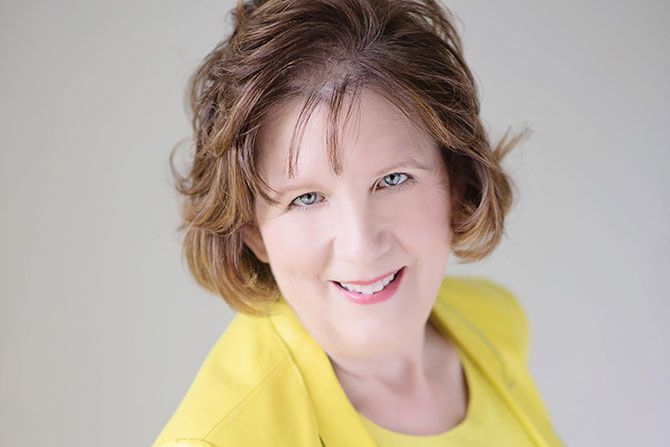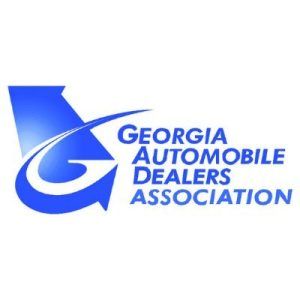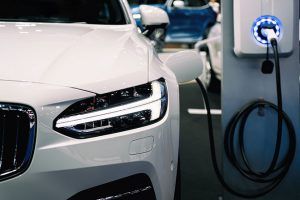Wanda Cronic Howell is the President and Dealer of The Cronic Automotive Group, a family-owned business consisting of three car dealerships in Griffin — Cronic Chevrolet Buick GMC, Cronic Nissan, and Cronic Chrysler Jeep Dodge Ram. Wanda grew up in the automobile industry and has been involved in the business full-time since 1985. She holds a master’s degree in business education from The University of South Carolina and an undergraduate degree in American Studies from Sweet Briar College in Virginia. She is an Atlanta native and is married to Lee N. Howell. Together, they have three grown daughters.
We recently sat down with Wanda and talked with her about her life, the industry, and being a member of GADA. The following are excerpts from our conversation. We would like to thank Wanda for her time and hope you enjoy getting to know her better.
Do you have any hobbies outside of work?
My family and I do a lot of historical traveling. We’re not big on just going to the beach. We like to go see the sights, museums, churches, art galleries and things like that. I always laugh and say my husband and I never saw a ruin we didn’t like to walk through; whether it’s Mayan or Roman or Greek, we are all over it. My favorite place I’ve visited is Italy; it’s wonderful. We truly enjoyed Scotland as well — the castles, the Loch Ness Monster, and the many myths are very interesting.
I also volunteer with three women’s groups — two chapters of the American Business Women’s Association (ABWA) and the Business Women’s Fayette & Coweta Counties (BWFC); I really enjoy it. I’ve been the Education Chair for the ABWA Griffin Chapter for 30 years, and we have awarded over $150,000 in scholarships to local women, both young and returning to school. It’s a very worthwhile goal to see women improving themselves.
Are you a first-generation dealer, or has your family been in the business for a while? If so, how long?
I am a second-generation dealer. My father came to Griffin, GA, in 1975 and became a Chevrolet dealer. I joined him 10 years later in 1985 and remember serving Coca-Cola at our grand opening. I started on the sales floor; my father felt it was very important that I learned how hard it is to sell cars. I also helped with advertising and public and community relations.
When I started, I had experience in retail, but it was fashion retail, so it was a different sell. It was a challenge. In retail, if someone comes into a clothing store, they can buy what they want to buy. But auto sales, with the financing fees and such, are much different. So many times, people want a vehicle they can’t buy straight out, so it’s a whole different range of helping them.
In 1996, we bought the Chrysler Jeep Dodge Ram dealership right across the street from our Chevrolet dealership. I was the dealer there, and it was kind of like a learning lab for me because my father would come over to oversee and guide me. When my father passed away in 2003, I became the dealer because I was his successor on the other lines, including Nissan.
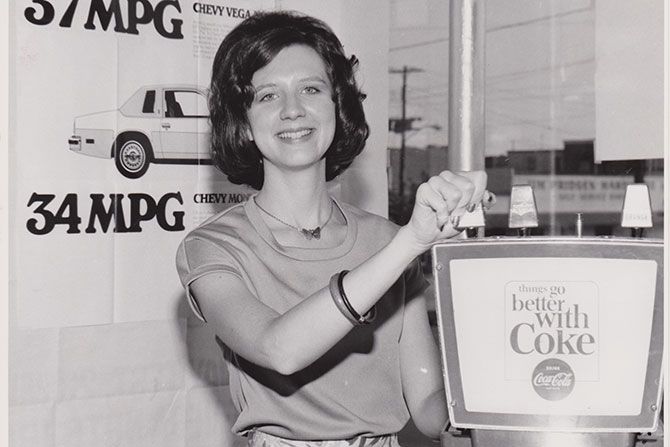
What are the issues facing the auto industry?
I think the threat to the franchise system is the biggest issue — from the direct sales model or the agency model. This issue was kicked off a few years ago, with Tesla challenging the franchise model.
The loss of the franchise system could be very damaging to auto dealers and the consumer. It’s a lose-lose. Not to mention our employees who are supporting their families and the local economy; the direct sales model has the possibility of taking it down in a way we don’t want, and can’t possibly foresee all of the repercussions.
The consumer now has the ability to negotiate anywhere in the U.S. for a vehicle, and we deliver them. The opportunity to shop very competitively and get the best deal would stop if we were to go to a direct sales model, an agency model. There would be one price selling, and it would become a monopoly.
How do you think the industry will change in the next 3-5 years?
I think we’re going to be responding to all this electrification that the manufacturers are encouraging us to get ready for. It’s incumbent upon each of us to be positive about the changes that are ahead. A lot of it’s going to depend, though, on the charging station infrastructure, and I don’t think the infrastructure is in place at this point. There are also issues with the batteries; they don’t do as well in extremes of heat and cold, so there’s a lot to be determined. The switch to EV may not be moving as quickly as some of the manufacturers are projecting, but we need to prepare.
Our Nissan store is already EV-ready because they had a big rollout years ago. We’ve sold and leased a lot of Nissan Leafs and had to have the charging stations and special booths in the service department where they can be worked on. We have the equipment for the Chevrolet Buick GMC store and have ordered the equipment for the Chrysler Jeep Dodge Ram store, which is currently undergoing a major renovation.
Why are franchised dealerships important?
Besides the benefit of competitive pricing for the consumer, the many people we employ, the boost to the local economy, and the commitment that the dealers make to their own individual communities is enormous. We’re always the first people that are asked to support Little League and youth sports, Boy Scouts and Girl Scouts, Kiwanis, Rotary, and activities at local schools. The impact that local dealers make on communities is noticeable. We live in and are involved in our communities as opposed to a company that has 50 dealerships throughout the U.S., headquartered in New York or somewhere, and nobody can get to them and ask them to engage. Being involved in the local community makes a really big difference.
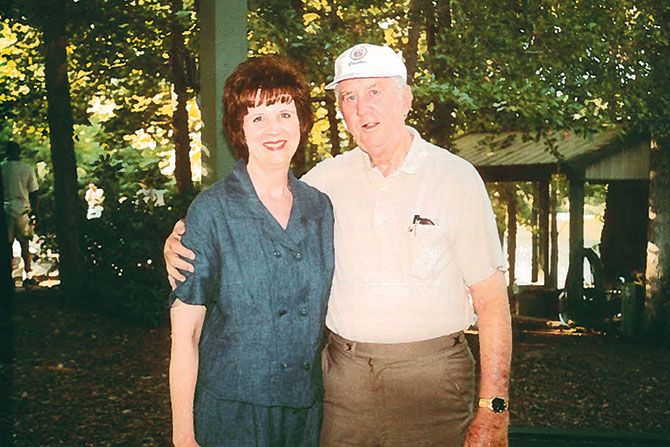
How long have you been a GADA member, and why did you get involved in the association?
I’ve been a member since I started in the industry in 1985, and my dad had been a member since 1975. He was a longtime board member of GADA representing District 4, and I’m now serving on the board in the same position he was in. He set a good example.
What do you see as the benefit of being an association member? How has membership benefited you specifically?
The opportunity GADA provides to connect with leaders from all over the state is really invaluable. When we’re at meetings, getting to talk and learn so much from fellow dealers, it really helps. As relationships grow, you can call fellow dealers and ask for advice.
Representing the interests of the new franchise and new car dealers is probably the biggest benefit. If we have a legal question, we’ve always been able to talk to the GADA legal counsel. And, of course, GADA helps with titling; they offer excellent training courses that we send our title clerks to. The association covers a myriad of aspects of the car business, not just protecting the franchise system; they have classes about and offer help on advertising practices, workers’ comp, and so much more.
Have you had any mentors along the way? What did you learn from them?
My primary mentor in the car business was my father. He was an amazing world-class retailer and business owner. He trained me, by example, to treat people in a very fair, compassionate, and honest way. It’s a high standard that I always aspire to meet. I think that’s why we have such good community support and a great local customer base — because of being compassionate and concerned about our customer’s needs.
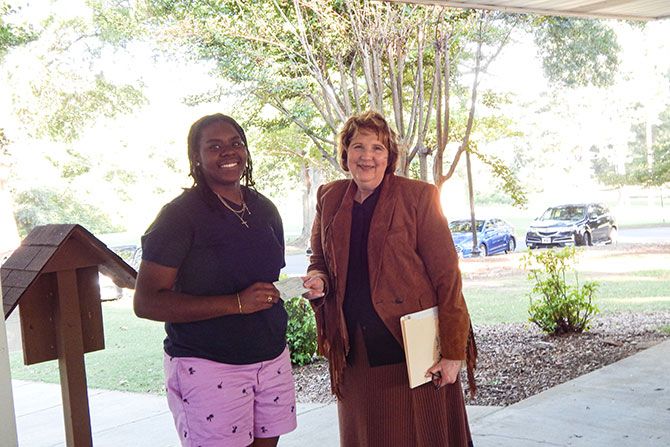
When you mentor others, what are three pieces of advice you would share?
- Hire the very best people you can. A lot of times, you hire people that are smarter than you are. And that’s good. Then you get out of their way and let them do their jobs.
- Happy employees ensure happy customers. So, we can’t work on customer satisfaction until we work on employee satisfaction. Make sure you take good care of your employees.
- As a dealer, it’s important to be proactively involved. If there are problems or concerns, customers should feel like they can come and talk to you. Be proactive about their concerns.
What is your biggest accomplishment? Have you won any awards?
Last year, I won Buick GMC’s first National Diversity Equity & Inclusion award. I was one of two recipients throughout the U.S. I have worked hard toward a diverse workforce and strive to make sure my practices, my activities, and my community involvement are inclusive, so I was very honored to receive that.
This year, we won the Better Community award from the Business Women of Fayette and Coweta Counties, for our sponsorship and for helping them with their fundraising capacities.
But I think the biggest achievement I take pride in is the thousands and thousands of dollars I’ve raised in local scholarships for young women in this community that are returning students to fund their college education.
Any last thoughts?
We are making the EV investment at our dealerships. It’s going to be costly, but it’s so important that we keep up-to-date for our customers. We always want to be part of the progress, the moving forward of our industry. We want to be in the forefront and stay positive, open, and receptive to change.



